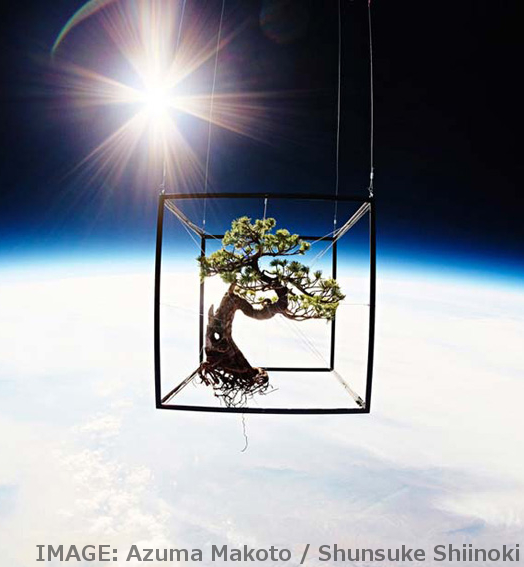Space plants to be based on local leaves
 Ancient Australian knowledge could be on the menu in the next generation of space-food.
Ancient Australian knowledge could be on the menu in the next generation of space-food.
Local scientists have discovered a gene they say will open the door for space-based food production.
A plant geneticist at the Queensland University of Technology (QUT) discovered the gene in the ancient Australian native tobacco plant Nicotiana benthamiana, known as Pitjuri to Aboriginal tribes.
The Pitjuri plant has been used by geneticists for decades as a model plant upon which to test viruses and vaccines.
“This plant is the 'laboratory rat' of the molecular plant world,” says QUT geneticist Professor Peter Waterhouse.
“We think of it as a magical plant with amazing properties.
“We now know that in 1939 its seeds were sent by an Australian scientist to a scientist in America and have been passed from lab to lab all over the world.
“By sequencing its genome and looking through historical records we have been able to determine that the original plant came from the Granites area near the Western Australia and Northern Territory border, close to where Wolf Creek was filmed.
“We know, through using a molecular clock and fossil records, that this particular plant has survived in its current form in the wild for around 750,000 years.”
Researcher Dr Julia Bally said determining the exact species had led researchers on a quest to find out how the plant managed to survive in the wild for such a long period of time.
“We have discovered that it is the plant equivalent of the nude mouse used in medical research,” Dr Bally said.
“The plant has lost its ‘immune system’, and has done that to focus its energies on being able to germinate and grow quickly, rapidly flower, and set seed after even a small amount of rainfall.
“Its focus is on creating small flowers but large seeds and on getting these seeds back into the soil in time for the next rain.
“The plant has worked out how to fight drought - its number one predator - in order to survive through generations.”
Professor Waterhouse, a molecular geneticist with QUT's Centre for Tropical Crops and Biocommodities, said scientists could use this discovery to investigate other niche or sterile growing environments where plants were protected from disease - and space was an intriguing option.
The team's findings also have implications for future genetic research back here on Earth.
“Scientists can now know how to turn other species into ‘nude mice’ for research purposes. So just as nude mice can be really good models for cancer research, ‘nude’ versions of crop plants could also speed up agricultural research,” he said.
Professor Waterhouse said the fact that the N. benthamiana variety from central Australia had doubled its seed size also opened the door for investigations into how N. benthamiana could be used commercially as a biofactory, as seeds were an excellent place in which to make antibodies for pharmaceutical use.
Researchers around the world can access Professor Waterhouse's open source website to study the genomes of seven family members.
Dr Bally and Professor Waterhouse have lodged a patent on their study (Organisms with Modified Growth Characteristics and Methods of Making Them) and a research paper - The extremophile Nicotiana bethamiana has traded viral defence for early vigour, has been published Nature Plant








 Print
Print